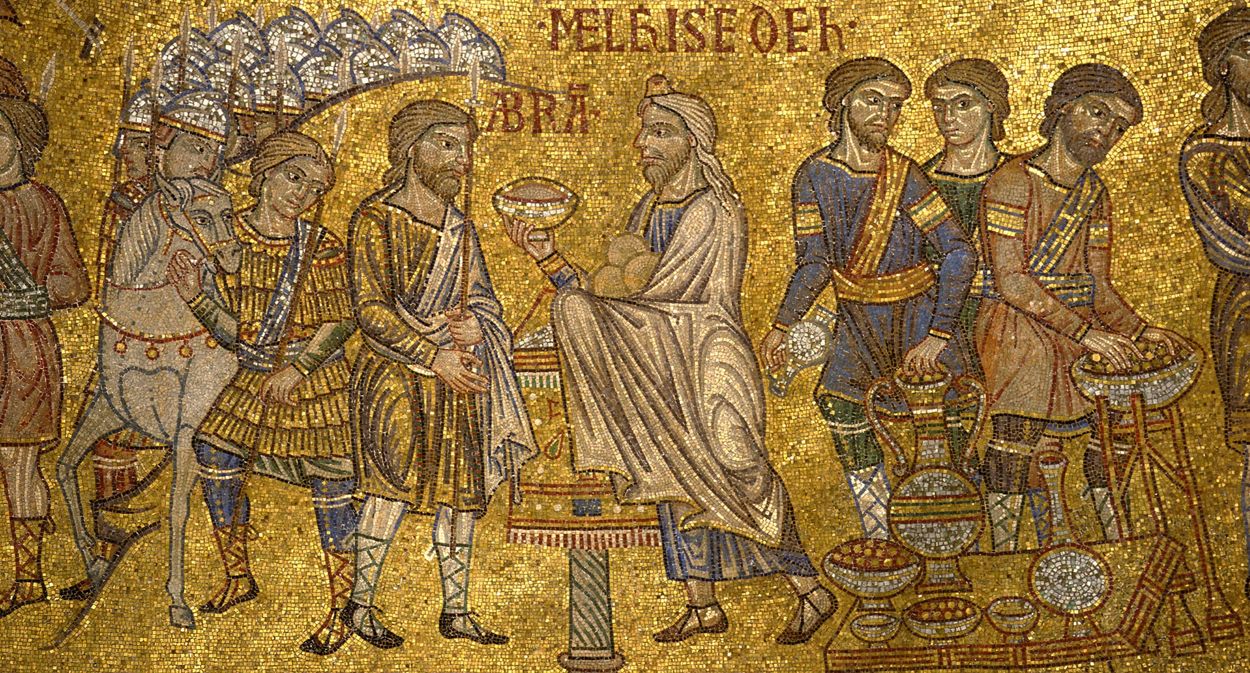WHO IS MELCHIZEDEK?
WHO IS MELCHIZEDEK? We first hear about the priest-king Melchizedek when he blesses Avram after his defeat of the four kings of the east. That’s in Genesis 14, where Melchizedek features in a grand total of three verses. Then, a thousand years later, King David calls him an “eternal priest” in one more verse in Psalm 110. That’s it. Just four verses in the Old Testament talk about him.
But, strangely enough, he is really important to later writers. There is a big Dead Sea Scroll text that says Melchizedek will come to judge the earth and bring in his kingdom of light. And the author of the Book of Hebrews has a whole lot to say about him. He says that Melchizedek is “without father or mother, without beginning of days or end of life”. The Rabbis of the Talmud, on the other hand, say Melchizedek was Shem the son of Noah, who muffed up his one-and-only chance to become the chosen priest of Jehovah. Meanwhile, the Church Fathers all say he was an ancient uncircumcised Canaanite king who blessed Abraham, but is long gone. All, that is, except for Ambrose of Milan, who came to a different opinion, which I happen to share as well.
Let’s put it this way: If this priest-king really is eternal, as Psalm 110 says, then he must still be eternal. And if that is so, where is he and what is he doing now? Or do eternal priest-kings just quietly disappear?
So who was he? The son of Noah? Or an ancient Canaanite potentate who died 4,000 years ago? Or someone much more relevant to our everyday lives?
I devote some 20,000 words to Melchizedek in Chapters 1, 4, and 5 of Jesus: The Incarnation of the Word.
